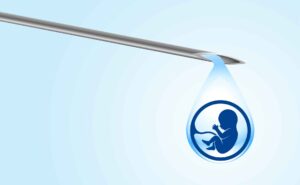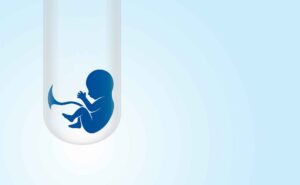For many individuals and couples the path to conception may present unexpected challenges, and today we are going to talk about that one uncertainty that makes people worry about their infertility- The health of the Follicles. Follicles aren’t just small structures; they hold the key to fertility. Here in the blog, let’s discuss the significance of follicles in fertility, and learn methods to assess their condition.
Understanding Follicles and their Significance in Fertility
Follicles are small structures within the ovaries, each containing an immature egg. Their primary function is to support the growth and maturation of eggs, ultimately leading to their release from the ovaries. The health and quality of follicles directly impact a woman’s fertility potential, influencing her ability to conceive and carry a healthy pregnancy to term.
Significance of Follicles in Fertility:
Follicles play a critical role in fertility for reasons such as:
- Egg Development: They provide the ideal environment for eggs to mature before ovulation.
- Hormone Regulation: Follicles produce hormones that regulate the menstrual cycle and prepare the body for potential pregnancy.
- Ovulation: Follicles are responsible for triggering ovulation, the release of the mature egg. If your follicles are healthy, you will likely experience a timely and regular ovulation cycle.
What is the Difference Between a Follicle and an Egg?
While it’s common for many people to assume that follicles and eggs are the same, they are, in fact, distinct entities with unique roles in the reproductive process. Unlike follicles, which can be visualized during ultrasound scans, eggs are microscopic and can only be observed under a microscope. Follicles serve as protective structures housing immature eggs, nurturing them as they develop within the ovaries. In contrast, eggs are the female reproductive cells, originating within follicles and undergoing maturation until they are released during ovulation.
How to Evaluate Follicle Health?
Assessing the health of follicles is a critical aspect of fertility treatment, providing valuable insights into a woman’s reproductive potential. Here’s a guide to evaluating follicle health:
1. Ultrasound
- Follicle Size: Optimal follicle size typically ranges between 18-20 millimeters before ovulation. During ultrasound scans, the diameter of follicles is measured to determine their size and maturity.
- Growth Rate: Healthy follicles exhibit steady growth, increasing in size at a consistent rate. Monitoring follicle growth over successive scans helps assess their development.
- Number of Follicles: The total number of follicles present in the ovaries is also considered, indicating ovarian reserve and fertility potential.
2. Hormonal Assessments
- Follicle-Stimulating Hormone (FSH): High FSH levels may indicate lowered ovarian reserve and reduced fertility. Lower FSH levels within the normal range are associated with optimal follicle development.
- Anti-Müllerian Hormone (AMH): AMH levels indicate ovarian reserve and the number of remaining follicles. Higher AMH levels reflect a good number of follicles and better fertility potential.
3. Blood Flow Measurements
Healthy follicles have good blood flow, which is essential for nutrient delivery to the developing egg. Specialized ultrasound techniques can assess blood flow to the follicles for a comprehensive evaluation.
4. Clinical Considerations
Advanced maternal age is associated with decreased follicle quality and quantity, impacting fertility outcomes. Additional tests, such as antral follicle count (AFC) and ovarian reserve testing, provide further information about follicle health and reproductive potential.
Through these, fertility specialists can assess follicle health accurately and tailor treatment strategies to better the chances of successful conception. Regular monitoring and adjustments based on follicular response are essential for improving fertility outcomes and achieving pregnancy.
Signs of Poor Follicle Health
Here are a few signs of poor follicle health:
- Insufficient Growth: Follicles failing to reach the optimal size of 18-20 millimeters before ovulation may indicate poor health and compromised fertility.
- Slow Growth Rate: Follicles should exhibit steady growth, increasing in size by approximately 1-2 millimeters per day. Slow or inconsistent growth rates may signal underlying issues with follicle development.
- Abnormal Morphology: Follicles with irregular shapes or structures observed during ultrasound scans may suggest abnormalities or developmental issues.
- Hormonal Imbalances: High follicle-stimulating hormone (FSH) levels and decreased anti-Müllerian hormone (AMH) levels are associated with poor follicle health.
- Failed Response to Ovarian Stimulation: Follicles that do not respond to ovarian stimulation medications, resulting in limited growth or insufficient egg production, may suggest poor follicle health.
As the health of follicles plays a major role in infertility, understanding their function is crucial for anyone trying to conceive. Early detection of follicle health helps timely intervention, potentially improving fertility outcomes and increasing the chances of successful conception.
Are you seeking expert care and personalized treatment plans? Trust The Boon IVF, as it is the best IVF fertility hospital in Hyderabad. Schedule a consultation today and take the first step towards building your family with confidence.


